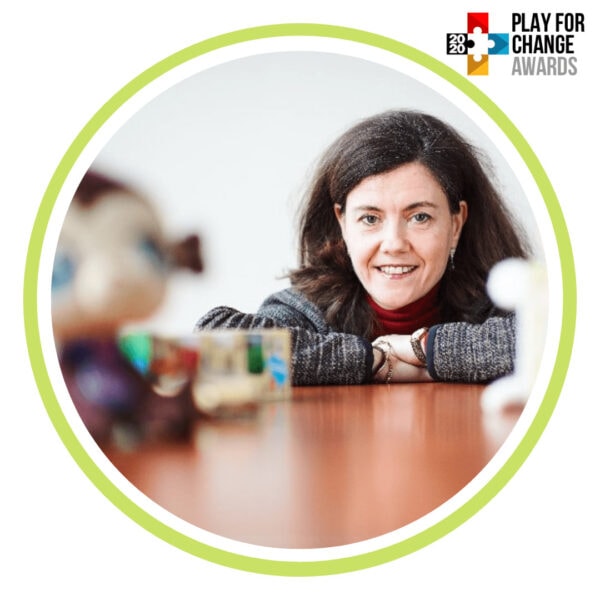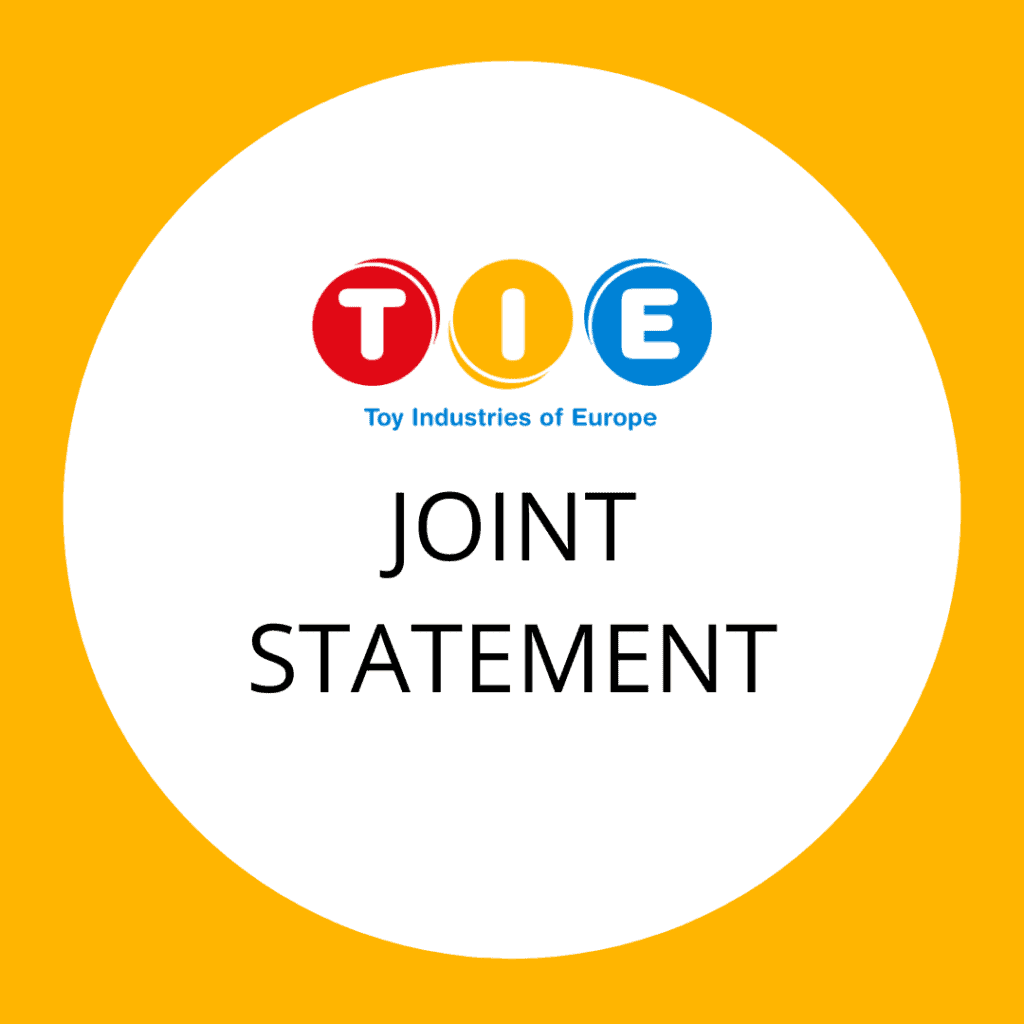At the end of September we revealed the winners of the Play for Change Awards. As we start to plan the 2021 edition, we wanted to reflect on how the first edition went. John Baulch, Editor of Toy World Magazine and Chair of the Play for Change Awards jury, joins Catherine Van Reeth, Director-General of TIE and Manager of the Awards.
Why did TIE decide to launch the Play for Change Awards, given the many other toy awards around?
Catherine: This time last year, the TIE Board was discussing the merits of organising an awards scheme that would celebrate those in the toy world who were doing more than producing great toys. We wanted to ensure that it was noticed that toy manufacturers are doing their best to come up with initiatives that are drivers for change. Change in terms of the sometimes-stereotypical way the toy world depicts the real world. Change in terms of the new skills children will need, and change in terms of meeting the environmental sustainability challenge. There are lots of toy awards out there, but none that seek to stress all of these things. And that’s how the Play for Change Awards were born.
As an experienced jury member in toy awards, what would you say makes the Play for Change Awards stand out?
John: For me, the Play for Change Awards were a breath of fresh air. Free from the commercial bias that some industry awards are constrained by, I felt they were credible and authentic – rewarding genuine developments and initiatives. In addition, the fact that there were only three awards meant that we were able to recognise the ground-breaking work being done by toy companies, without diluting the impact by having dozens of winners. If everyone wins, no-one wins.
What are your main take-aways?
Catherine: First of all I was really impressed by a lot of the entries, a real testament to the fact there is a clear change within the sector. Also I’m excited by the pool of great work that we know is still out there but didn’t enter the competition. Covid-19 complicated things but I can see real potential for the number of entries to grow substantially. I was impressed by the enthusiasm of the jury and enjoyed their broad perspectives. From an organisational point of view, it was a real learning experience under difficult circumstances but we’ll carry those learnings into future years.
How do you think we could encourage more companies to participate?
John: 2020 was an unusual year in many respects, and with some companies operating with reduced staffing levels and almost everyone working remotely, it is no surprise that many companies needed to focus on business-critical activity this year, especially sales and the retail channel. But as business starts to return to normal, I would definitely encourage all toy companies to participate in next year’s awards – large or small, established or new.
Will there be any changes to the categories next time around?
Catherine: We’re open to suggestions but the fact is that these are three of the ‘principal’ societal concerns that the toy industry is working hard on. It’s important in the early stages of the awards to maintain focus. Right now, every sector is being questioned about what they are doing to help the planet survive, our sector in particular can help children change their view of the world by making sure the perception we paint is as inclusive as possible, and of course we are best placed to help kids develop certain skills.
The jury were given set criteria against which each entrant was judged. But were there differences in the approach of the three jury panels?
John: The judging process was certainly a complex one, with much lively debate involved. We were often comparing very different approaches, especially when asked to weigh up the merits of a specific product against a concept, such as a recycling or packaging initiative, or a marketing campaign. But it was fascinating to hear the views of jury members who represented a wide range of disciplines and perspectives, and ultimately, we were able to arrive at a consensus.
When we first started discussing the awards, you were concerned the smaller companies would not participate as they would feel ‘outranked’ by the bigger companies who often have bigger budgets. What was your final impression?
John: There was certainly no bias towards companies based on their scale or budget – some of the jury members came from outside the industry, so they weren’t judging based on preconceived notions of company size or financial muscle. I believe the list of gold, silver and bronze winners represented a good mix of different sized operations, and I would encourage companies of any size who are making positive contributions in the fields of sustainability, inclusivity and future skills to submit entries next year – you could end up being acknowledged as a trailblazer in 2021.
For more information on the winners or to register your interest for 2021 please click here.



